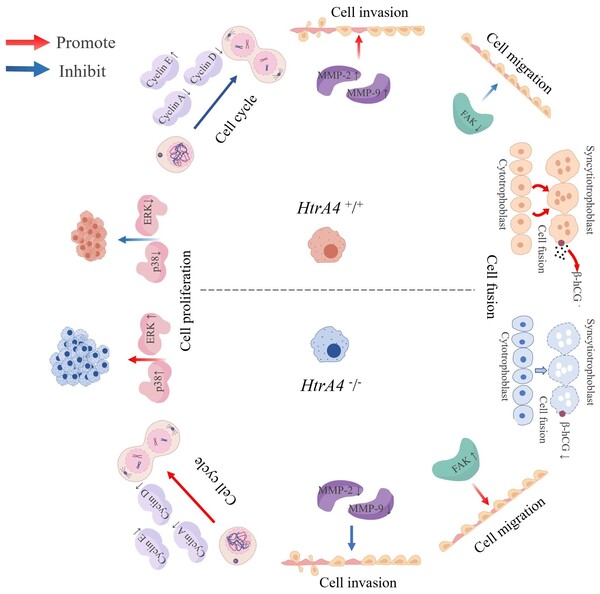A team of researchers from CHA University and CHA Hospital has discovered biomarkers that are expected to help diagnose and treat patients with recurrent miscarriages.

A team of researchers led by Professor Baek Kwang-hyun from CHA University Department of Biomedical Science identified that the genes, HtrA4 and PGK1, are expressed less in the chorionic villi of the placenta and serum of patients with recurrent miscarriage compared to the normal group.
High-temperature requirement factor A4 (HtrA4) is a placenta-specific gene that affects the cell cycle, while, phosphoglycerate kinase 1 (PGK1) is a protein associated with anti-inflammatory properties.
The researchers divided a total of 92 women in their 30s into the experimental group and the normal group, drew blood, peripheral blood mononuclear cells (PBMC), and serum to determine the expression levels of the two genes.
Accordingly, the results showed that the HtrA4 gene was reduced by 65 percent in the patients compared to the normal group, and PGK1 was also reduced compared to the control group.
The researchers found that the decrease in HtrA4 in the placenta interferes with the formation of the membrane between the uterus and the amniotic sac that surrounds the fetus.
They also reasoned that this decreases the production of human chorionic gonadotropin which plays an important role in maintaining pregnancy and affects placental function by shortening the chorionic cell cycle.
PGK1 also has anti-inflammatory properties that inhibit the production of the ITI-H4 protein which has inflammatory properties.
"We found that these two proteins, which play an important role in implantation and pregnancy maintenance, were expressed less in patients with recurrent miscarriages," said the study's first author, Pei Chang-zhu of CHA University. "This study is important for identifying biomarkers related to recurrent miscarriage and laying the foundation for developing therapeutic drugs and diagnostic kits to identify patients quickly to prevent and manage the disease."
The results were published as two separate studies in the international journal, Biomedicine & Pharmacotherapy, and Cells. One study investigated the modulatory impact of PGK1 on ITI-H4 and another looked at the cellular functions of HtrA4 on the placenta.

